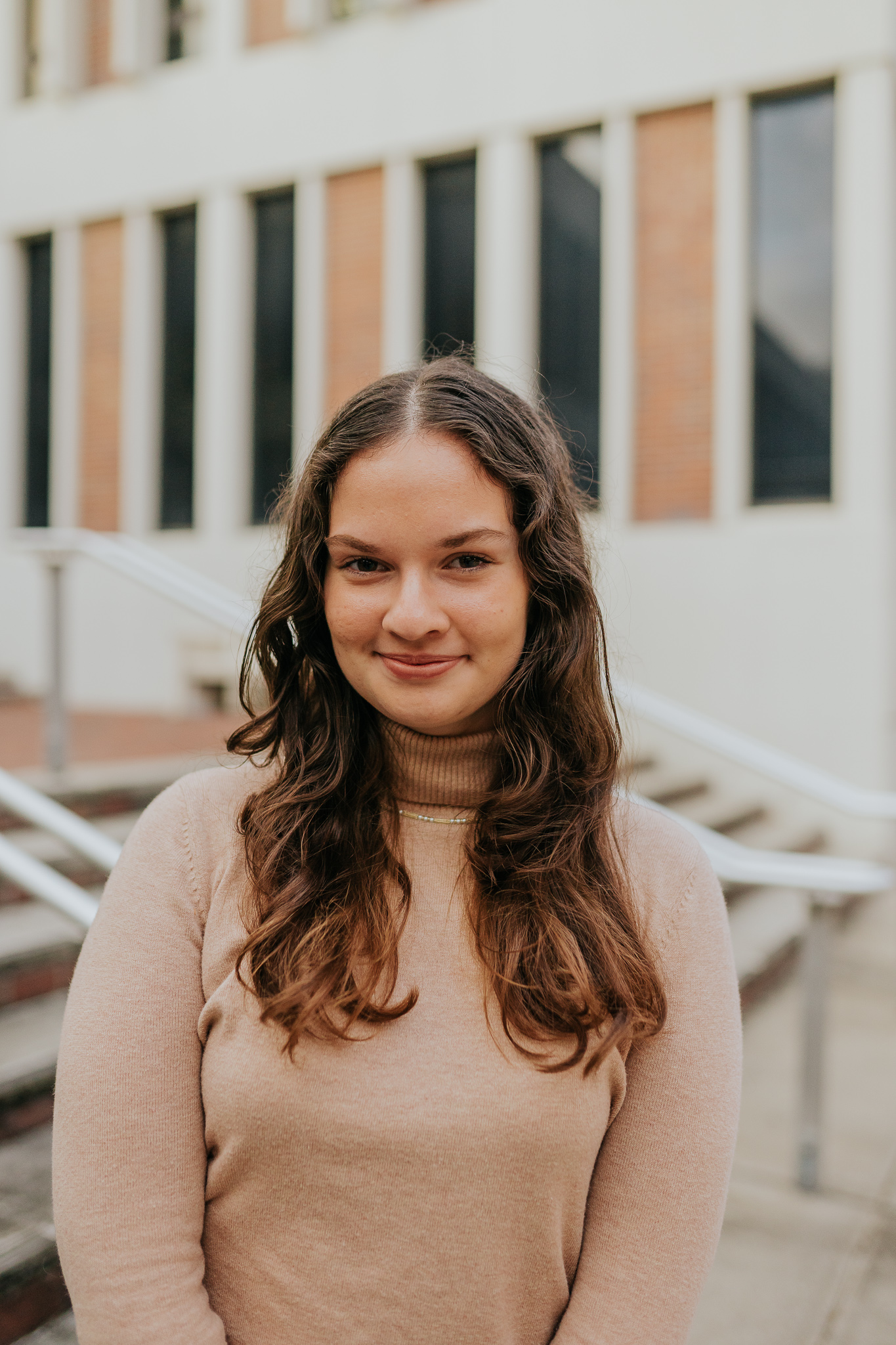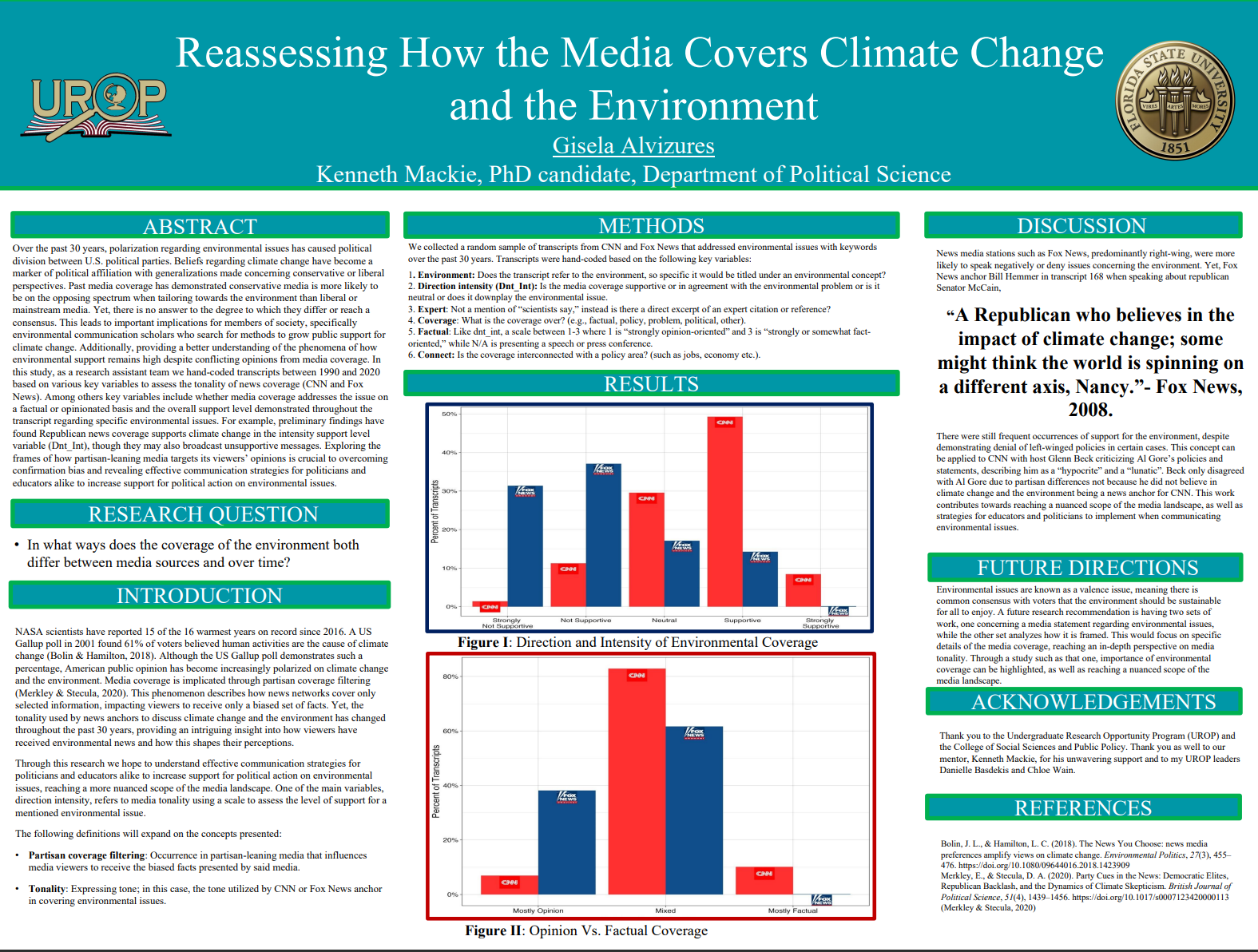Research Symposium
23rd annual Undergraduate Research Symposium, April 6, 2023
Gisela Alvizures Poster Session 2: 1:30 pm - 2:30 pm/ Poster #215

BIO
I am from Miami, Florida, with aspirations of going to law school. Involvements include Global Scholars, Professional Development Chair for the College of Social Sciences Student Leadership Council, and PeaceJam Service Chair. Involved with the Women's Student Union, under the 1910 Honorary Society and Women's History Month Committee. Additionally, I am a CARE student in QUEST scholars and in the FGEN Noles Living-Learning Community. My research aspirations are environmental conservation research, after this UROP project, my plan is to conduct independent research on these environmental issues and their relation to public policy, possibly exploring the intersection of media. The goal of this independent research is to promote awareness of these issues and how public policy contributes towards amending them. Through these research projects, I am able to gain a foundation in environmental law for my future career goals, which are to support underrepresented communities which are affected by land use and environmental injustices.
Reassessing How the Media Covers Climate Change and the Environment
Authors: Gisela Alvizures, Kenneth MackieStudent Major: Political science double major sociology
Mentor: Kenneth Mackie
Mentor's Department: Department of Political Science Mentor's College: College of Social Sciences and Public Policy Co-Presenters:
Abstract
Over the past 30 years, polarization regarding environmental issues has caused political division between U.S. political parties. Beliefs regarding climate change have become a marker of political affiliation with generalizations made concerning conservative or liberal perspectives. Past media coverage has demonstrated conservative media is more likely to be on the opposing spectrum when tailoring towards the environment than liberal or mainstream media. Yet, there is no answer to the degree to which they differ or reach a consensus. This leads to important implications for members of society, specifically environmental communication scholars who search for methods to grow public support for climate change. Additionally, providing a better understanding of the phenomena of how environmental support remains high despite conflicting opinions from media coverage. In this study, as a research assistant team we hand-coded transcripts between 1990 and 2020 based on various key variables to assess the tonality of news coverage (CNN and Fox News). Among others key variables include whether media coverage addresses the issue on a factual or opinionated basis and the overall support level demonstrated throughout the transcript regarding specific environmental issues. For example, preliminary findings have found Republican news coverage supports climate change in the intensity support level variable (Dnt_Int), though they may also broadcast unsupportive messages. Exploring the frames of how partisan-leaning media targets its viewers’ opinions is crucial to overcoming confirmation bias and revealing effective communication strategies for politicians and educators alike to increase support for political action on environmental issues.
Keywords: Media, Environmental Issues, Climate Change

